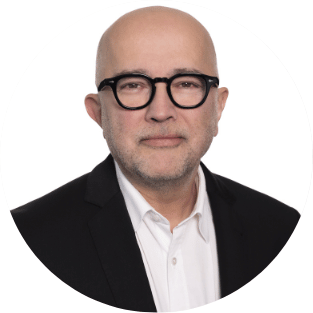Unlocking Approval: Christophe Piketty from Galderma in an Illuminating Conversation with PharmaShots
Shots:
- Backed by positive results from the P-III ARCADIA study, Galderma’s Nemluvio recently received approval from the US FDA for patients with moderate to severe atopic dermatitis
- Nemluvio (nemolizumab) has previously been approved for the treatment of prurigo nodularis
- Christophe Piketty, VP, Head of Innovation, Therapeutic Dermatology, Global Clinical Sciences, Galderma, highlighted insights from the study, discussed the safety and tolerability of Nemluvio, and addressed the unmet needs of patients with moderate to severe atopic dermatitis
Saurabh: Would you elaborate on the study design of the phase III ARCADIA study?
Christophe: The ARCADIA program included two identically designed global, randomized, multicenter, double-blind, placebo-controlled phase III clinical trials, ARCADIA 1 and ARCADIA 2, which enrolled 1,728 adolescent and adult patients (12 years and over) with moderate-to-severe atopic dermatitis. These studies evaluated the efficacy and safety of Nemluvio (nemolizumab) 30 mg administered subcutaneously every four weeks with a 60 mg loading dose compared to placebo, both administered with background topical corticosteroids (TCS) and/or topical calcineurin inhibitors (TCI). The trials were conducted for an initial treatment phase of 16 weeks. Patients who responded to treatment (defined as patients who achieved an investigator’s global assessment (IGA) score of clear (0) or almost-clear (1), or a 75% or greater improvement in the Eczema Area and Severity Index (EASI) score) were then re-randomized to a maintenance treatment phase up to Week 48 to receive either Nemluvio 30 mg every four weeks, Nemluvio every eight weeks or placebo every four weeks.
Saurabh: What primary and secondary endpoints did you target in patients participating in ARCADIA?
Christophe: The co-primary endpoints of the ARCADIA trials measured the number of Nemluvio-treated patients who reached clearance or almost clearance of skin lesions when assessed using the IGA score, and achieved a 75% reduction in the EASI score, when compared to placebo (both in combination with TCS, and/or TCI) after 16 weeks of treatment. The ARCADIA trials were successful in meeting these co-primary endpoints as statistically significant improvements on skin clearance were demonstrated, with up to 38% of patients treated with Nemluvio reaching clearance or almost clearance or skin lesions, and up to 44% of patients treated with Nemluvio achieving a 75% reduction in the EASI score.
Multiple key secondary endpoints were studied in the ARCADIA trials, such as the proportion of patients achieving an at least four-point reduction in itch intensity as measured by the Peak-Pruritus Numerical Rating Scale compared to placebo at Weeks 1, 2, 4, and 16, and achieving an at least four-point improvement in sleep disturbance as measured by the sleep disturbance numerical rating scale compared to placebo at Week 16. The ARCADIA trials met all key secondary endpoints at Week 16 and earlier time points, demonstrating significant responses on itch as early as Week 1 and statistically significant improvements in sleep disturbance.
Saurabh: How has Nemluvio improved the standard of treatment for patients suffering from Atopic Dermatitis? Also, can you give us an insight into the safety and tolerability of Nemluvio?
Christophe: Atopic dermatitis affects more than 230 million people worldwide, and while currently available treatments for atopic dermatitis may improve some signs and symptoms of the disease, many patients do not respond optimally to approved therapies and do not experience itch relief and clear skin to the same degree.
IL-31 is a neuroimmune cytokine that drives itch – the most burdensome symptom of atopic dermatitis – and is also involved in inflammation and skin barrier dysfunction. Nemluvio’s approval by the FDA offers atopic dermatitis patients in the U.S. a novel, effective treatment option with a unique mode of action. Nemluvio is the first approved monoclonal antibody that specifically targets the IL-31 receptor alpha, inhibiting the signaling of IL-31
The results from the ARCADIA clinical trial program mentioned above show that Nemluvio has the potential to address the significant unmet needs of patients with moderate-to-severe atopic dermatitis.
Additionally, Nemluvio is the first biologic shown to maintain itch and skin responses in atopic dermatitis when dosing once every eight weeks, starting at Week 16 for patients that were skin responders.
In terms of safety, the ARCADIA clinical trial program also showed that Nemluvio was well tolerated, and its safety profile was generally consistent between Nemluvio and placebo groups.
Saurabh: How does Nemluvio offer patients an advantage over JAK or PDE4 inhibitors approved for the market?
Christophe: No direct head-to-head studies comparing the efficacy and safety of Nemluvio to other already approved treatments are currently available so it would not be appropriate for me to draw comparisons. Ultimately, the availability of more treatment options is good news for patients with atopic dermatitis, which is the most common inflammatory skin disease and is also highly heterogenous. There is therefore a need for a diverse range of effective and safe treatment options that address the various underlying disease mechanisms.
Saurabh: Is Nemluvio under investigation for any other indications? If not, is there a possibility of investigation of combination therapies to reform treatment options?
Christophe: We have identified other new potential indications for Nemluvio that are currently under assessment for clinical development.
Saurabh: Is Galderma working on other monoclonal antibodies within the dermatology space?
Christophe: We are not currently investigating other monoclonal antibodies aside from Nemluvio.
As the pure-play dermatology category leader, we maintain a broad portfolio which spans the full spectrum of dermatology and are also committed to developing new therapies in diverse disease areas with unmet medical needs.
About the Author:

Christophe Piketty
Dr. Piketty is a board-certified Dermatologist and Clinical Immunologist and has been Global Program Head at Galderma since 2018. He has extensive expertise in the development of topical compounds and systemic drugs, including biologics, from proof of concept to phase 3 in dermatology.
Related Post: Fingers Crossed: Christophe Piketty from Galderma in a Stimulating Conversation with PharmaShots



